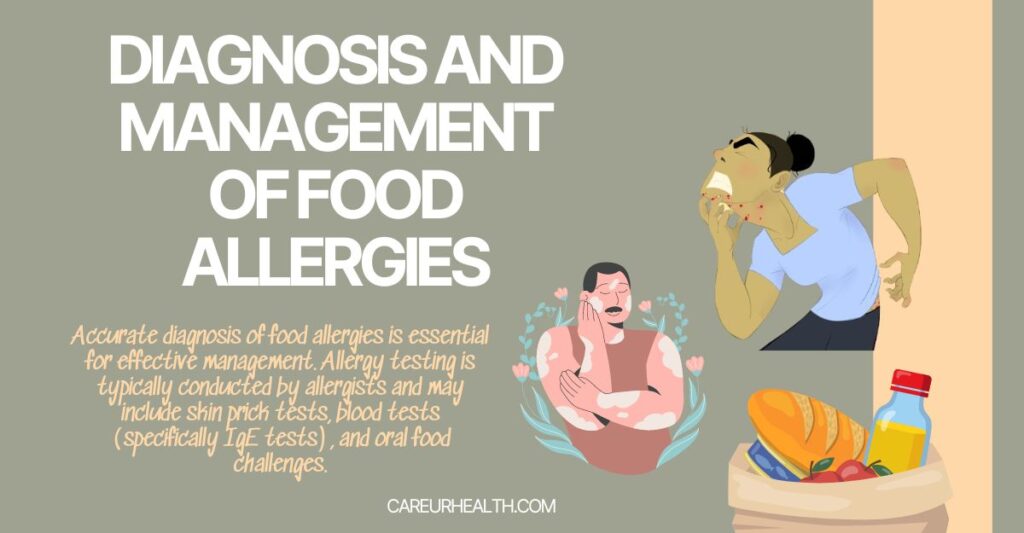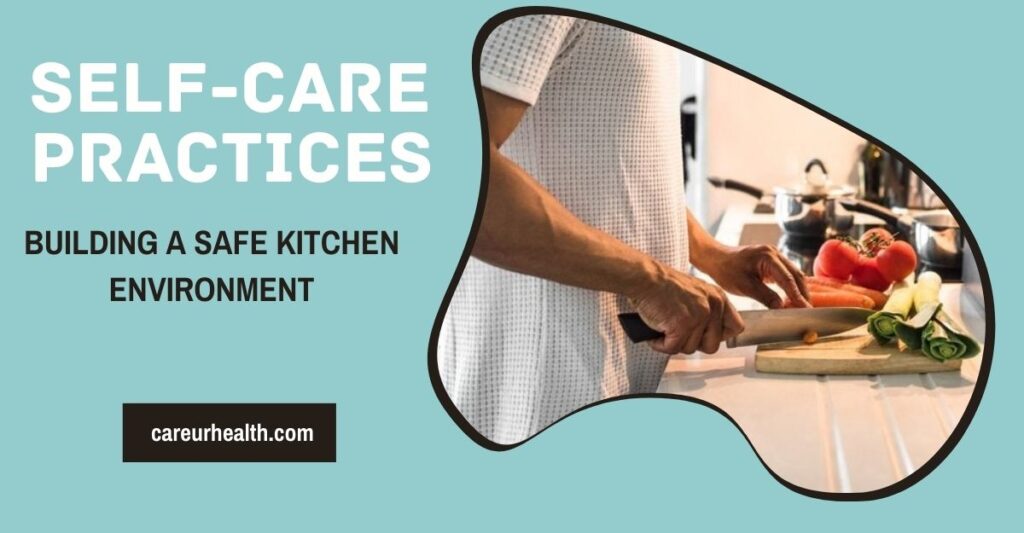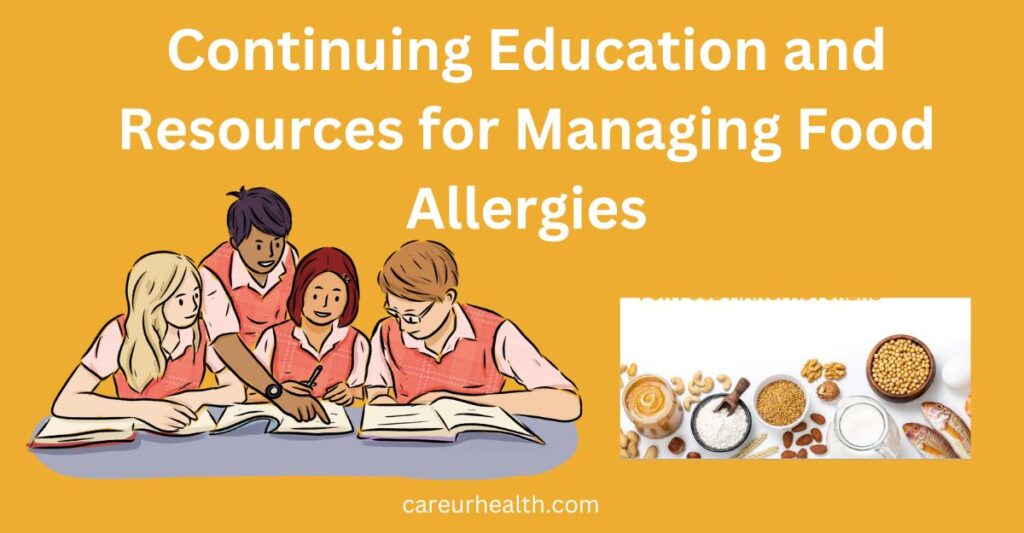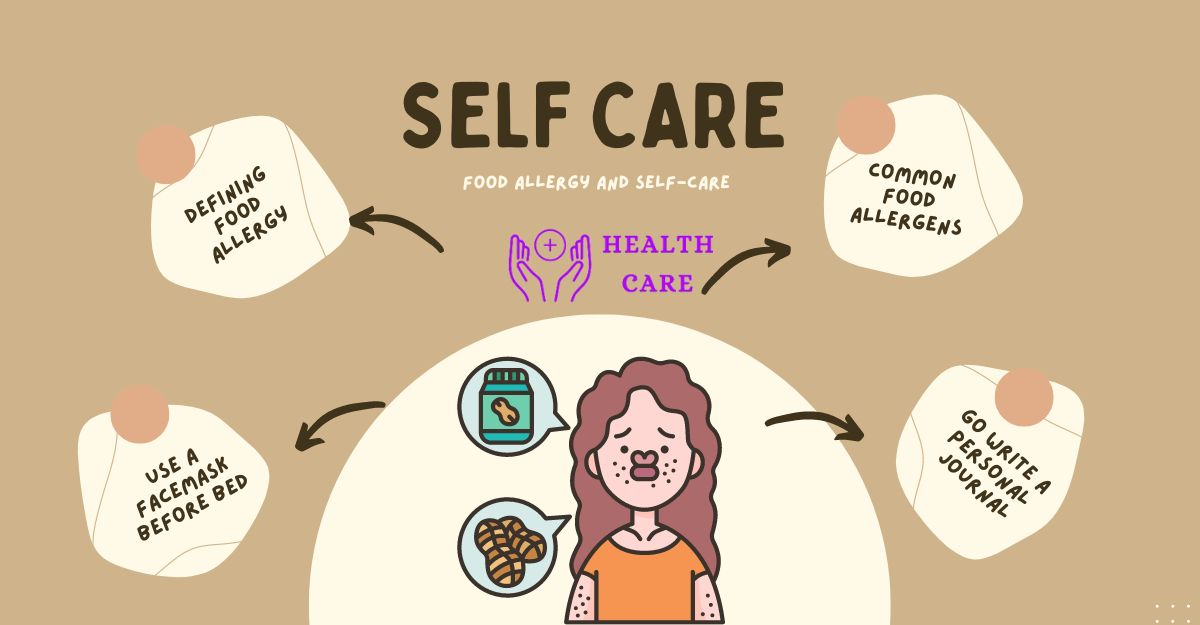Understanding and managing food allergies is essential for maintaining health and well-being in today’s world. With the prevalence of food allergies on the rise, it’s crucial to empower individuals with the knowledge and tools they need to navigate this potentially life-threatening condition. This comprehensive guide aims to shed light on the complexities of food allergies, from recognizing symptoms to implementing effective self-care practices. By providing insights into diagnosis, management, and lifestyle adjustments, this guide seeks to empower individuals to take control of their health and confidently navigate social, dietary, and emotional challenges associated with food allergies. Through education, support, and proactive measures, we can create a safer and more inclusive environment for everyone affected by food allergies. Food allergy and self-care.

Understanding Food Allergy
Defining Food Allergy:
Food allergy is an immune system response triggered by certain foods. Unlike food intolerances, which typically involve digestive discomfort, allergies involve the body’s immune system mistakenly identifying specific proteins in food as harmful invaders. This triggers an allergic reaction, which can range from mild to severe and, in some cases, life-threatening. There are many self care for food allergy.
Common Food Allergens:
Some foods are more likely to cause allergic reactions than others. Common food allergens include peanuts, tree nuts, eggs, milk, soy, wheat, fish, and shellfish. These allergens can be found in a wide range of foods, making it essential for individuals with allergies to carefully read labels and be vigilant about potential sources of exposure.
Symptoms of Food Allergies:
Allergic reactions can manifest in various ways, affecting different systems of the body. Symptoms may include hives, swelling of the face or throat, itching or tingling in the mouth, digestive issues such as vomiting or diarrhoea, respiratory problems like wheezing or difficulty breathing, and in severe cases, anaphylaxis, a life-threatening reaction that requires immediate medical attention.
Risk Factors and Triggers:
While anyone can develop a food allergy, certain factors may increase the risk. Genetics, environmental factors, and early exposure to allergenic foods during infancy are among the factors that can influence the development of food allergies. Additionally, cross-reactivity between similar proteins in different foods and environmental allergens can trigger allergic reactions in susceptible individuals. There are many self care for food allergy.
Diagnosis and Management of Food Allergies
Diagnosing Food Allergies :
Accurate diagnosis of food allergies is essential for effective management. Allergy testing is typically conducted by allergists and may include skin prick tests, blood tests (specifically IgE tests), and oral food challenges. These tests help identify specific allergens triggering allergic reactions in individuals. It’s important to note that self-diagnosis or reliance on unvalidated tests can lead to misdiagnosis and unnecessary dietary restrictions. There are many self care for food allergy.

Creating an Allergy Management Plan :
Once diagnosed, individuals should work with healthcare professionals to develop a personalized allergy management plan. This plan outlines strategies for avoiding allergenic foods, recognizing symptoms of allergic reactions, and seeking appropriate medical treatment. It may also include instructions for carrying emergency medication, such as epinephrine auto-injectors (e.g., EpiPen) and educating family members, caregivers, and school personnel about allergy management protocols. There are many self care for food allergy.
Avoidance and Elimination :
Strict avoidance of allergenic foods is the cornerstone of managing food allergies. This involves reading food labels carefully, asking about ingredients when dining out and being cautious about cross-contamination in shared kitchen spaces. Individuals with food allergies may need to modify their diet to exclude specific allergens or seek out allergy-friendly alternatives. There are many self care for food allergy.
Self-Care Practices for Managing Food Allergies
1. Building a Safe Kitchen Environment :
Creating a safe kitchen environment is paramount for individuals with food allergies. This involves implementing strategies to prevent cross-contamination and ensure that allergenic foods are stored separately.

Some key practices include:
- Designating allergen-free zones or cabinets for storing safe foods.
- Using separate cutting boards, utensils, and cooking equipment for preparing allergen-free meals.
- Cleaning kitchen surfaces thoroughly to remove traces of allergens after preparing meals. This one of self-care for food allergy.
2. Meal Planning and Preparation :
Effective meal planning and preparation can streamline the process of managing food allergies and ensure that individuals have access to safe and nutritious meals.
Consider the following tips:
- Plan meals ahead of time and create shopping lists to ensure that allergen-free ingredients are readily available.
- Batch cook allergen-free meals and freeze portions for easy reheating on busy days.
- Experiment with allergy-friendly recipes and substitutions to maintain variety in the diet while avoiding allergenic foods. This one of self-care for food allergy.
3. Managing Emotional Well-being :
Living with food allergies can be emotionally challenging, leading to feelings of anxiety, stress, or isolation.
It’s essential to prioritize emotional well-being by:
- Seeking support from family, friends, and healthcare professionals who understand the challenges of living with food allergies.
- Participating in support groups or online communities for individuals with food allergies to share experiences and coping strategies.
- Practicing stress-reduction techniques such as mindfulness, meditation, or deep breathing exercises to manage anxiety and promote relaxation. This one of self-care for food allergy.
4. Emergency Preparedness :
Being prepared for allergic reactions is crucial for individuals with food allergies.
This includes:
- Carrying emergency medication, such as epinephrine auto-injectors (e.g., EpiPen), at all times.
- Creating an emergency action plan that outlines steps to take in the event of an allergic reaction, including when to administer epinephrine and when to seek medical attention.
- Educating family members, friends, and caregivers on how to recognize the signs of an allergic reaction and how to respond appropriately. This one of self-care for food allergy.
Continuing Education and Resources for Managing Food Allergies
1. Staying Informed :
Keeping up-to-date with the latest information and research developments in the field of food allergies is essential for individuals managing this condition.
Key resources for staying informed include:
- Reliable websites and online platforms dedicated to food allergy education and advocacy, such as Food Allergy Research & Education (FARE) and the Asthma and Allergy Foundation of America (AAFA).
- Medical journals and publications that publish research articles and studies on food allergies, allergen immunotherapy, and emerging treatment options.
- Attending conferences, seminars, and webinars hosted by reputable organizations and medical institutions focused on food allergy awareness, research, and management. This one of self-care for food allergy.
2. Community Engagement :
Engaging with the food allergy community can provide valuable support, resources, and opportunities for advocacy.
Ways to get involved include:
- Participating in food allergy support groups, both online and in-person, to connect with others facing similar challenges and share experiences.
- Joining advocacy organizations and grassroots initiatives dedicated to raising awareness about food allergies, promoting food labelling legislation, and advocating for safer environments for individuals with allergies.
- Volunteering for food allergy research studies and clinical trials to contribute to advancements in diagnosis, treatment, and prevention. This one of self-care for food allergy.

3. Educational Materials and Publications :
Accessing educational materials and publications tailored to individuals with food allergies can provide practical information and guidance on managing the condition.
Examples of resources include:
- Books, guides, and pamphlets written by healthcare professionals specializing in food allergies, dietitians, and allergy advocates.
- Educational videos and webinars covering topics such as label reading, emergency preparedness, and navigating social situations with food allergies.
- Online courses and training modules offered by healthcare organizations, universities, and advocacy groups to deepen understanding of food allergy management and self-care strategies.
4. Healthcare Professionals :
Establishing relationships with knowledgeable healthcare professionals who specialize in food allergies is crucial for receiving personalized care and guidance.
This includes:
- Allergists and immunologists who can diagnose food allergies, conduct allergy testing, and develop comprehensive management plans tailored to individual needs.
- Registered dietitians with expertise in food allergies who can provide dietary counselling, meal planning assistance, and nutritional support.
- Psychologists or counsellors who specialize in supporting individuals with chronic conditions, including managing the emotional impact of living with food allergies.
Lifestyle Adjustments for Managing Food Allergies
Living with food allergies often requires making significant lifestyle adjustments to minimize the risk of allergic reactions and maintain optimal health.
Some key adjustments include:
1. Dietary Modifications :
- Avoiding allergenic foods and ingredients by carefully reading food labels and choosing allergen-free alternatives.
- Experimenting with new recipes and meal options to maintain a balanced and nutritious diet while excluding allergens. This one of self-care for food allergy.
2. Social Adaptations :
- Communicating openly about food allergies with family, friends, coworkers, and restaurant staff to ensure safe dining experiences.
- Planning for social events by bringing allergen-free snacks or meals and advocating for allergy-friendly accommodations when necessary. This one of self-care for food allergy.
3. Travel Precautions :
- Research food options and accommodations at travel destinations to avoid potential allergen exposures.
- Packing allergen-free snacks and emergency medication when travelling and familiarizing oneself with emergency medical resources in unfamiliar locations.
4. Education and Advocacy :
- Educating others about food allergies and advocating for allergy awareness, inclusion, and policy changes in schools, workplaces, and public spaces.
- Participating in food allergy research studies and clinical trials to contribute to advancements in diagnosis, treatment, and prevention.
Conclusion
In conclusion, managing food allergies requires a multifaceted approach encompassing education, self-care practices, and lifestyle adjustments. By understanding the nature of food allergies, identifying allergens, and implementing effective management strategies, individuals can minimize the risk of allergic reactions and maintain optimal health. Through ongoing education, community engagement, and advocacy efforts, we can work towards creating safer and more inclusive environments for individuals with food allergies. By prioritizing self-care for food allergy, fostering support networks, and staying informed about advancements in allergy research and treatment, we empower individuals to navigate life with food allergies confidently and lead fulfilling lives free from the limitations imposed by their condition. Together, we can strive towards a future where everyone, regardless of food allergies, can thrive and participate fully in all aspects of life.
Frequently Asked Questions ( FAQs)
- What are food allergy and why is self-care important in managing them?
• Food allergy are immune system reactions to certain foods, and self-care is crucial for avoiding allergens, recognizing symptoms, and responding appropriately to allergic reactions. - How can I recognize if I have a food allergy?
• Common symptoms include hives, swelling, itching or tingling in the mouth, digestive issues, respiratory problems, and in severe cases, anaphylaxis. - What are some common food allergens I should be aware of?
• Common allergens include peanuts, tree nuts, eggs, milk, soy, wheat, fish, and shellfish. - How can I manage my food allergies daily?
• Managing food allergies involves strict avoidance of allergenic foods, reading food labels carefully, and being vigilant about cross-contamination. - What self-care for food allergy practices can help me create a safe kitchen environment?
• Practices include designating allergen-free zones, using separate cooking equipment, and thorough cleaning to prevent cross-contamination. - What should I do in case of an allergic reaction?
• Have emergency medication, like epinephrine auto-injectors, on hand, and follow an emergency action plan outlining steps to take in the event of a reaction. - How can I cope with the emotional impact of living with food allergies?
• Seek support from healthcare professionals, participate in support groups, and practice stress-reduction techniques like mindfulness or meditation. - What resources are available for individuals with food allergies?
• Reliable websites, support groups, educational materials, and healthcare professionals specializing in food allergies offer valuable resources and support. - What lifestyle adjustments might I need to make to manage my food allergies?
• Dietary modifications, social adaptations, travel precautions, and education and advocacy efforts may be necessary to minimize the risk of allergic reactions. - Where can I find more information about food allergy and self-care?
• Reputable organizations, medical journals, educational materials, and healthcare professionals specializing in food allergies are valuable sources of information and support.
American College of Allergy, Asthm










